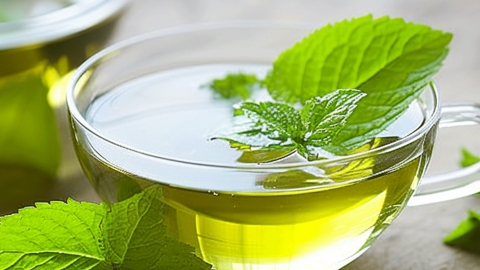Can pregnant women eat mint leaves?
Generally, pregnant women can consume mint leaves in small amounts if they consult with a doctor, obtain permission, and have no allergic reactions. However, they should not consume mint leaves if they have not received medical approval, are allergic to mint, consume it in large quantities, or have a sensitive constitution. Detailed analysis is as follows:

If a pregnant woman has normal health indicators during pregnancy, has consulted with a doctor and received permission, and is not allergic to mint, occasional and small consumption of mint leaves may help relieve common pregnancy discomforts such as nausea and loss of appetite due to its cooling effect. It may also help freshen breath. When consumed in small amounts, its components can be normally metabolized by the body and generally do not cause significant adverse effects on the pregnant woman or the fetus.
However, if a pregnant woman consumes mint leaves without prior medical evaluation, it may pose significant risks. Mint leaves are cool in nature, and excessive consumption may irritate the gastrointestinal tract, causing abdominal pain and diarrhea, which may affect nutrient absorption and indirectly impact fetal development. Ingredients in mint may also stimulate the uterus, especially during early pregnancy, and excessive consumption may trigger uterine contractions and increase the risk of miscarriage. If the pregnant woman has an allergic constitution and experiences allergic reactions such as rashes, itching, or shortness of breath after consumption, this could seriously threaten the health of both mother and baby. In such cases, mint consumption should be strictly prohibited.
Pregnant women must consult a professional obstetrician-gynecologist before consuming mint leaves. Only after confirming that their health condition is suitable should they consider consumption, and they must strictly control the quantity. If any discomfort occurs during consumption, they should stop immediately and seek medical attention.





